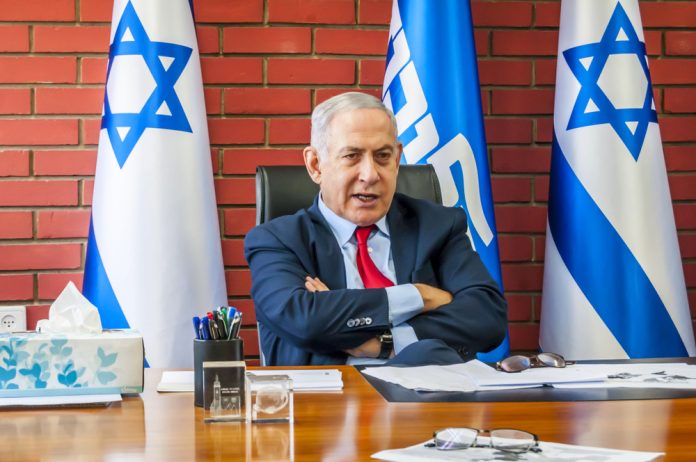
Israel’s blockade of Arab foreign ministers from the West Bank has triggered a furious response from Saudi Arabia, calling it an act of “extremism” that confirms Israel has no interest in peace.
Key Takeaways
- Saudi Arabia has condemned Israel’s decision to block Arab foreign ministers from visiting the West Bank as “extremism and rejection of peace”
- The blocked delegation included Saudi Foreign Minister Prince Faisal bin Farhan Al Saud, who would have made a historic first visit to the West Bank
- Israel justified the blockade by claiming the Palestinian Authority planned a “provocative meeting” to promote Palestinian statehood
- An international conference co-chaired by France and Saudi Arabia is scheduled in New York to discuss pathways to Palestinian statehood
- The incident further strains relations as Israel faces mounting international pressure to support a two-state solution
Saudi Arabia Denounces Israeli “Extremism”
Saudi Arabia has issued a strong rebuke of Israel after its decision to prevent Arab foreign ministers from visiting the occupied West Bank. The diplomatic trip, which would have included top officials from several Arab nations, was intended to show solidarity with Palestinians amid ongoing conflict in Gaza. Saudi Foreign Minister Prince Faisal bin Farhan Al Saud delivered the criticism during a news conference in Amman, Jordan, characterizing Israel’s actions as evidence of its unwillingness to pursue peace.
The blocked visit would have been a significant diplomatic event, with Prince Faisal’s appearance marking the first visit by a top Saudi official to the West Bank in recent memory. The Arab ministers had planned to meet with Palestinian President Mahmoud Abbas in Ramallah as part of coordinated efforts to boost Palestinian diplomatic standing. Israel, which controls all access to the West Bank including its airspace and borders, denied permission for the diplomatic contingent.
“Israel’s refusal of the committee’s visit to the West Bank embodies and confirms its extremism and refusal of any serious attempts for [a] peaceful pathway … It strengthens our will to double our diplomatic efforts within the international community to face this arrogance,” Said Prince Faisal bin Farhan Al Saud, Saudi Foreign Minister.
Israel Defends Its Decision
Israeli officials defended the controversial move, arguing that the Palestinian Authority was attempting to organize what they described as a provocative diplomatic event. The Israeli government, which has faced increasing international criticism for its actions in Gaza and the West Bank, portrayed the planned meeting as an attempt to advance Palestinian statehood aspirations without proper negotiations. This stance aligns with the current Israeli administration’s resistance to a two-state solution.
“Which to this day refuses to condemn the October 7 massacre – intended to host in Ramallah a provocative meeting of foreign ministers from Arab countries to discuss According to The Palestinian Authority
The diplomatic incident occurs against a backdrop of increasing pressure from the United Nations and European countries on Israel to accept a two-state solution. President Trump’s administration has maintained support for Israel while also pushing for regional stability. Jordan’s Foreign Minister Ayman Safadi joined Saudi Arabia in criticizing Israel’s actions, stating that the blockade was effectively “killing any chance of a just and comprehensive” Arab-Israeli settlement.
International Conference Plans Move Forward
Despite the diplomatic tensions, plans are proceeding for an international conference co-chaired by France and Saudi Arabia to address Palestinian statehood. The meeting, scheduled to take place in New York between June 17 and 20, aims to explore pathways toward Palestinian sovereignty and enhance security collaboration in the region. Egyptian Foreign Minister Badr Abdelatty has indicated the conference will also address security arrangements following any potential ceasefire in Gaza.
The conference organizers intend to focus on reconstruction plans for Gaza and preventing Palestinian displacement, issues that have become increasingly urgent as the conflict continues. With Saudi Arabia taking a more assertive diplomatic role in Palestinian affairs, this latest friction with Israel potentially complicates previously reported efforts toward normalization between the two nations. The blockade of the Arab ministers’ visit demonstrates the significant challenges facing any peace process in the region.
This latest diplomatic confrontation highlights the deepening divide between Israel and Arab nations regarding Palestinian statehood. As international pressure mounts on Israel to engage with two-state solution proposals, the decision to block high-level Arab diplomats from visiting the West Bank signals a continued hardline approach that may further isolate Israel diplomatically while strengthening Arab resolve to pursue Palestinian statehood through international forums.



